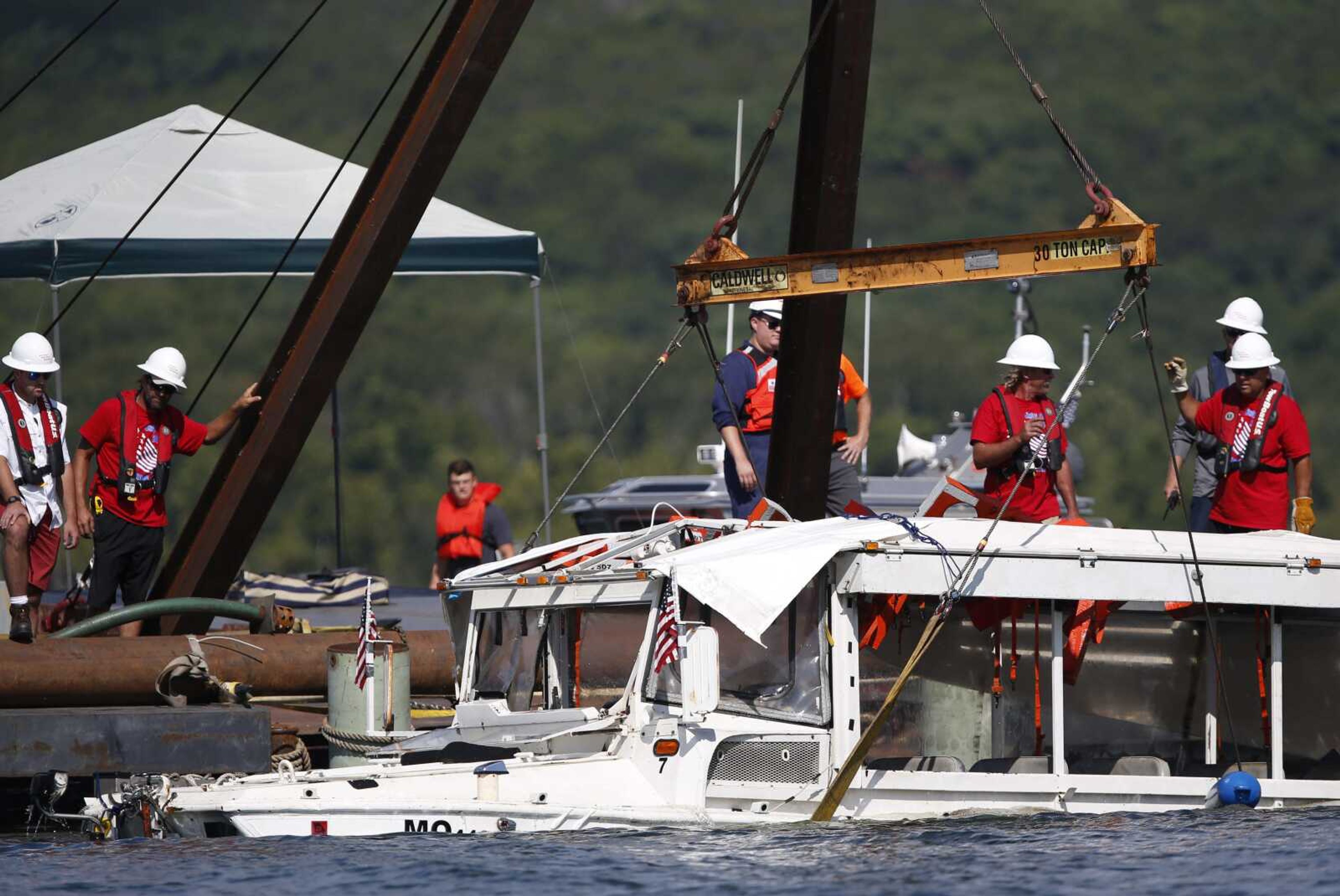Congress OKs new law on tourist boats after Missouri tragedy
JEFFERSON CITY, Mo. -- A bill requiring stricter safety rules in response to the 2018 deadly sinking of a tourist boat in Missouri is headed to President Joe Biden for his signature. The legislation, which passed the Senate on Thursday, directs the U.S. Coast Guard to draft new requirements for amphibious vehicles such as the duck boat that sank during a storm on Table Rock Lake near Branson. Seventeen riders from Missouri, Indiana, Illinois and Arkansas were killed; 14 people survived...
JEFFERSON CITY, Mo. -- A bill requiring stricter safety rules in response to the 2018 deadly sinking of a tourist boat in Missouri is headed to President Joe Biden for his signature.
The legislation, which passed the Senate on Thursday, directs the U.S. Coast Guard to draft new requirements for amphibious vehicles such as the duck boat that sank during a storm on Table Rock Lake near Branson. Seventeen riders from Missouri, Indiana, Illinois and Arkansas were killed; 14 people survived.
Lawmakers included the new regulations in a defense funding bill.
The measure calls for design changes to ensure the crafts stay upright. The Missouri vessel flooded through an air intake hatch on the bow that was not weather tight.
Many of the changes were recommended by the National Transportation Safety Board after its investigation into the July 2018 tragedy.
If the Coast Guard had followed recommendations for small passenger boats that the NTSB made after a similar boat sank in Arkansas in 1999, killing 13 people, the Missouri vessel "likely would not have sunk," NTSB accident investigator Brian Young said when the report was released.
The agency has said Ride the Ducks should have suspended water operations that day because of the severe weather forecast.
Under the measure, operators of amphibious vehicles would also be required to seek refuge if a weather watch or warning is issued for high winds.
The legislation also calls for immediate removal of canopies, side curtains and associated framing from the boats to improve passengers' chances of escape during emergencies.
On April 5, a Missouri judge dismissed first-degree involuntary manslaughter charges against Kenneth Scott McKee, 54, the captain of the boat; Curtis P. Lanham, 39, the general manager at Ride the Ducks in Branson; and Charles V. Baltzell, 79, the operations supervisor who was a manager on duty when the boat sank.
Missouri Attorney General Eric Schmitt's office refiled involuntary manslaughter charges against the three within days.
Attorneys for the men have said they were not aware of the severity of the storm and did not intentionally put their passengers in danger.
Connect with the Southeast Missourian Newsroom:
For corrections to this story or other insights for the editor, click here. To submit a letter to the editor, click here. To learn about the Southeast Missourian’s AI Policy, click here.










